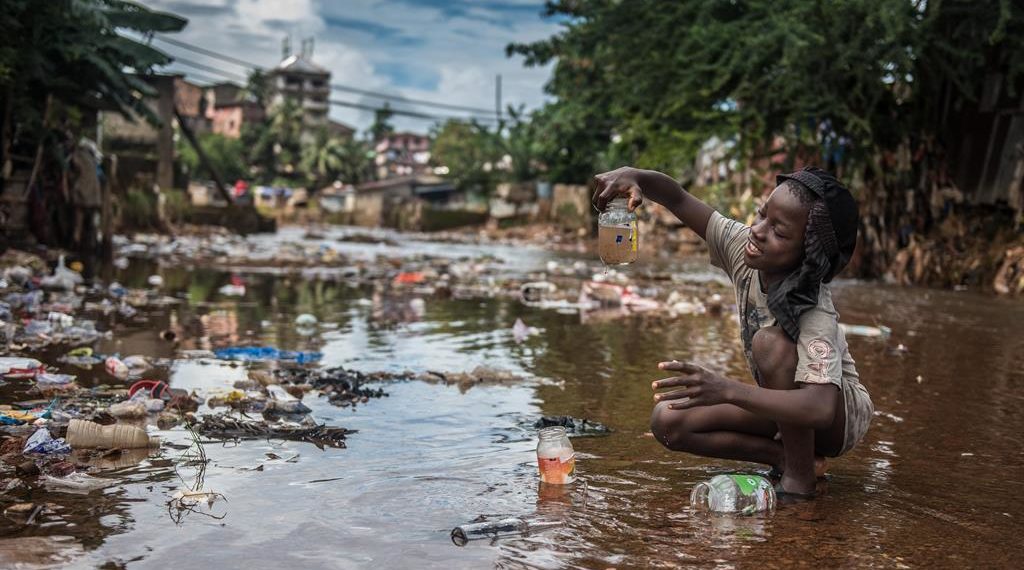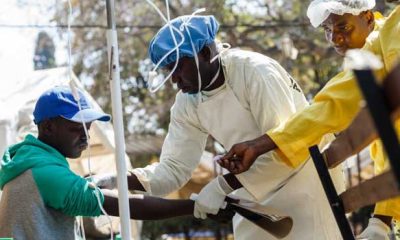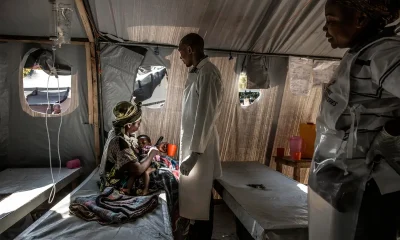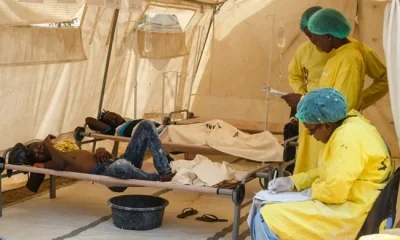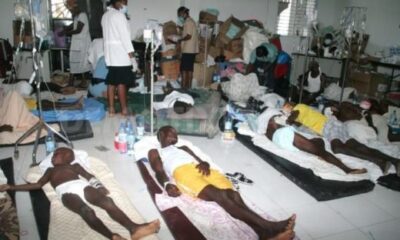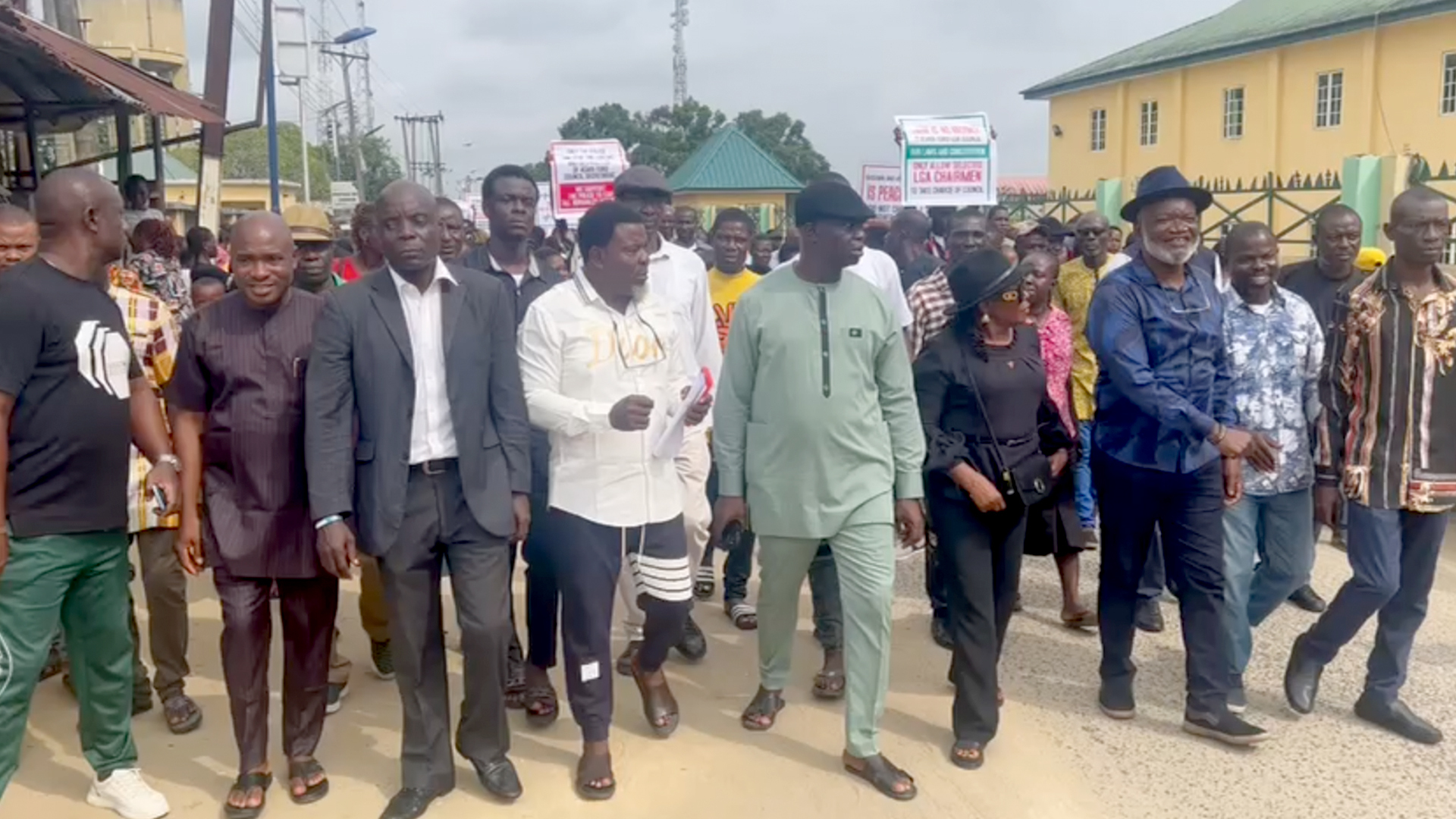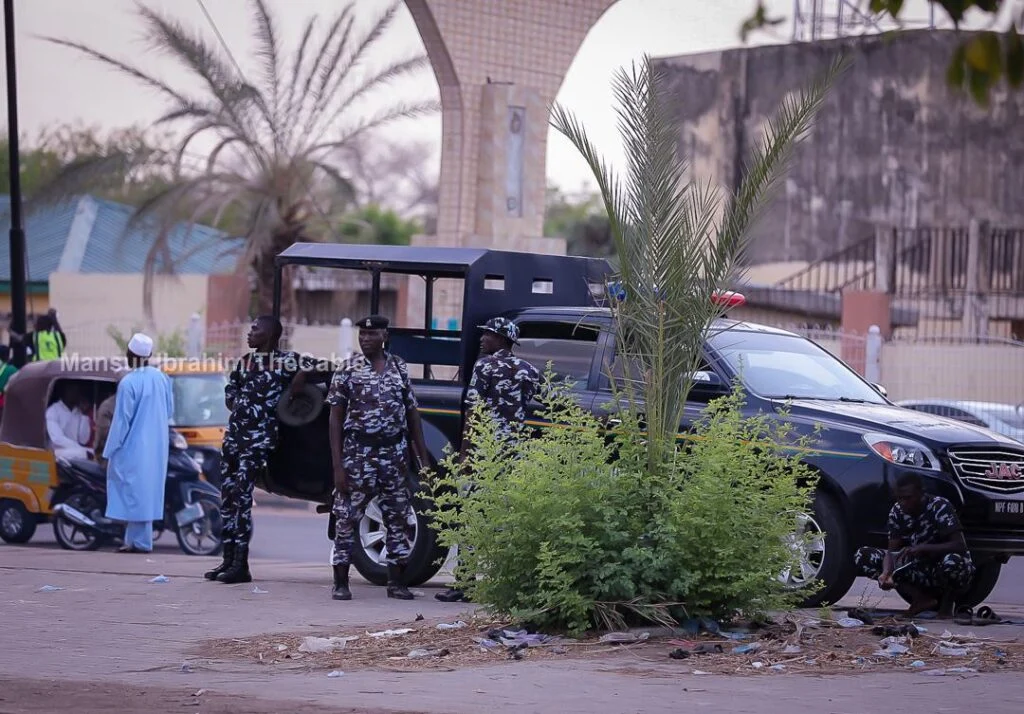Medical experts have warned that the latest cholera outbreak may spread to many communities and states in the country during the Eid-el-Kabir celebration if necessary measures were not quickly taken to limit the spread of the acute diarrhoeal infection.
The experts said the increase in travel over the holiday season might result in a rise in cholera cases.
This comes as the Lagos State Government confirmed 15 deaths from the infection.
Cholera is a food and water-borne disease caused by the ingestion of the bacteria— Vibrio cholerae— in contaminated water and food.
The Nigeria Centre for Disease Control and Prevention also warned the public of the increasing trend of cholera cases across the country as the rainy season intensifies.
The centre stated that from January 1 to June 11, 2024, over 1,141 suspected and over 65 confirmed cases of cholera, resulting in over 30 deaths, had been reported from 96 LGAs in 30 states.
It noted that the 10 states contributing 90 per cent to the burden of cholera include Bayelsa, Zamfara, Abia, Cross River, Bauchi, Delta, Katsina, Imo, Nasarawa, and Lagos states.
In Nigeria, cholera is an endemic and seasonal disease, occurring annually mostly during the rainy season and more frequently in areas with poor sanitation.
There were 473,000 cholera cases reported to WHO in 2022 – double the number from 2021. A further increase of cases by 700,000 was estimated in 2023.
The latest data from the World Health Organisation showed that a cumulative total of 145,900 cholera cases and 1,766 deaths were reported from 24 countries across five WHO regions, with Africa recording the highest numbers, followed by the Eastern Mediterranean Region, the Region of the Americas, the South-East Asia Region, and the European Region.
Speaking on the possibility of further spread during the Sallah celebration, the President of the Nigerian Association of Resident Doctors, Dr Dele Abdullahi, stated that the surge in holiday season travel could lead to an increase in cholera cases.
Abdullahi said, “Cholera is a bacterial infection, so there is a possibility of it spreading to other states during the festive season.
“Because of the Sallah celebration, a lot of migration is going to occur. People will move from one place to the other, and many of them, possibly in the incubation period, will change location. The key here is for our healthcare facilities to maintain a high index of suspicion when they encounter any cases of vomiting and diarrhoea.
“I am confident that the outbreak will not spoil the Sallah celebration,” he added.
To curb the spread, the NARD President stressed the need to maintain optimal and high standards of hygiene.
“We need a high index of suspicion. Whenever we encounter patients with vomiting, we must quickly take them to health facilities. It is better to arrive there and find out that it’s just food poisoning than to be uncertain about the health condition we’re dealing with.
“People should also avoid self-medication and refrain from using unorthodox methods to manage their health issues at home. All these measures will help in curbing the spread of the disease,” he said.
Also, a former Chairman of the Association of Private Medical Practitioners of Nigeria, Dr Tunji Akintade, said, “If someone with the disease travels without taking care of themselves and defecates in an open place, their faeces could contaminate water sources and infect others. Thus, there is a possibility of the disease spreading due to its transmission through water and poor hygiene.”
Akintade further emphasised that individuals who maintained good personal and environmental hygiene and were mindful of what and where they ate were less likely to be infected.
“If I live in the same house with someone who has cholera but we’re not eating the same things, and I’m careful about what I consume, I may not contract it. Therefore, when people travel, it’s crucial to advise them against drinking water from areas where cases have been reported.
“People need to maintain good hygiene, wash their hands after using the toilet, and ensure their surroundings are clean,” he concluded.
Also, a consultant family physician and Head of Department, Family Medicine Department at the University of Ilorin, Kwara State, Dr Ibrahim Kuranga-Suleiman, affirmed that the infection could spread as people travelled if precautionary measures were neglected.
Kuranga-Suleiman said, “The disease may spread during the Sallah period. To curb this, we must enhance our hygiene practices and ensure fruits are thoroughly washed and foods well-cooked. Even the water we drink must be sourced from safe and clean sources.
“By taking these precautions, we can prevent not only cholera but also travel-related diarrhoea, which is common among travellers.”
NCDC urges prevention
Speaking on a programme on Channels Television on Saturday, the Director General of the NCDC, Dr Jide Idris, stressed that prevention was key in fighting the disease.
Idris noted that as the rainy season intensified, there were possibilities of increasing cases of cholera in the country.
“The Nigerian Meteorological Agency has said that the rains this year are going to be heavier, and when you have rains, you’re going to have floods, and this leads to contamination of our water sources, so the chances are that cholera cases will increase.”
The DG, who blamed the outbreak of the infection on poor sanitation, personal and environmental hygiene, and lack of access to clean water, noted that the agency was conducting a risk assessment and had alerted all the states about the outbreak.
“To me, it’s a disease that is related to basic sanitation. My observation is that prevention is very weak, which also strengthens your point that we seem to have forgotten the need for prevention, or are not taking it very seriously. In a situation where resources are limited, I think that’s the best approach.
“If you go back to this cholera case, it’s a problem of poor sanitation and good personal and environmental hygiene, as well as lack of access to water. The easiest way to ensure good personal hygiene is hand-washing, especially after using the toilet and before cooking your food.
“But in a situation where people are told to practice hand-washing and there’s no access to water, it’s a problem. So, I think everybody, including the Federal Government, state governments, different agencies, local governments, and even the community, have to come together.”
The DG said the state governments must ensure access to clean water and toilets for their citizens.

 News3 years ago
News3 years ago
 Entertainment2 years ago
Entertainment2 years ago
 Privacy3 years ago
Privacy3 years ago
 News3 years ago
News3 years ago
 Sports2 years ago
Sports2 years ago
 Entertainment3 years ago
Entertainment3 years ago
 Opinion3 years ago
Opinion3 years ago
 News3 years ago
News3 years ago
